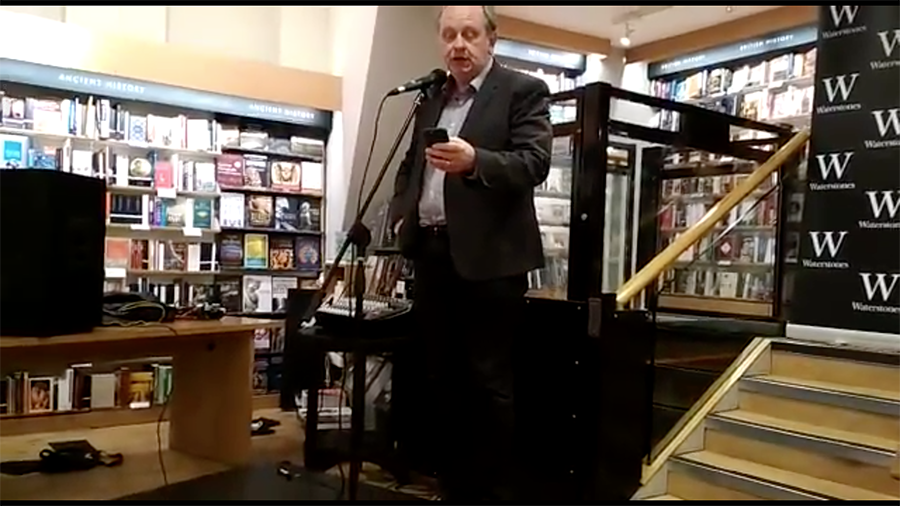Clearly, I am the first ever writer to act on stage. I hear rumours of some other person called William who’s done it, but no, it was me. And as such, I have advice that I can now bestow for all writerkind to learn from.
Don’t ignore flashing red lights.
I really did act last night, and it was the first time I’d performed someone else’s script, but I was also producing. And I wrote another of the pieces for the evening, which I performed. Get me. Part of the production job, though, was recording the night.
So I had two locked-off cameras shooting video and audio from left and right of the stage. I had one lapel mic which we used to audio record parts that had a solo performer on stage. And I had two separate audio recorders positioned on the set.
I set all this going just before we opened the doors and I can see me now, asking an actor whether “that red flashing light” is distracting. I’d never seen this particular audio recorder flash red quite so much, but in my defence, it did look like it was flashing in time to the music.
Since I usually use it for interviews and so once it’s running, I’m not looking at it, I figured I’d just not noticed the red flashing before.
And I can see me now, finding something in my gear bag to cover up the red lights.
For this particular audio recorder, you press Record once to, I don’t know, arm it. Then you press Record again to set it actually recording.
And it turns out that until you press it that second time, the whole unit flashes as many red lights at you as it can.
Consequently, while the other cameras and all the other recorders captured about 90 minutes of show, that last audio recorder has about 15 seconds of me swearing.
But I swore very well. I emoted. I conveyed with clarity the depth of my feelings at that moment.
I wasn’t acting.
I’m not certain that I was acting when I performed my own piece. It’s a one-man short play, and the thing of it is that you’re not supposed to quite realise when I go from introducing the piece to actually doing it. You’re not supposed to know that every word from when I get on stage to when I leave is actually the story.
While it’s effective and, most importantly, right for this particular story, it also means that for a lot of the time, I am presenting as if I were doing a workshop. That is a performance, and the fiction of this story requires me to get quite upset, but it’s closer to what I do all the time.
Plus, it was my script, so of course I know it. I’ve acted in my own pieces before – hardly often, but generally very successfully.
What was different for me last night was that I performed someone else’s script.
And that is weird.
For the first time in my life, I have actually said the words “what’s my motivation?” during rehearsals. So much of what we write, or maybe just of what I write, is instinctual, and it’s when you have to see it from another direction that you become conscious of it.
It was all there in script, I just had to find it and in that digging, I was examining all the things about character that I usually just do unconsciously while writing.
Previously I’d have told you that I understand how actors do what they do, I mean I can comprehend the process even if I can’t do it. But now I can tell you that I don’t have a clue why they do it.
But it was pretty great getting to do a curtain call alongside proper actors.
